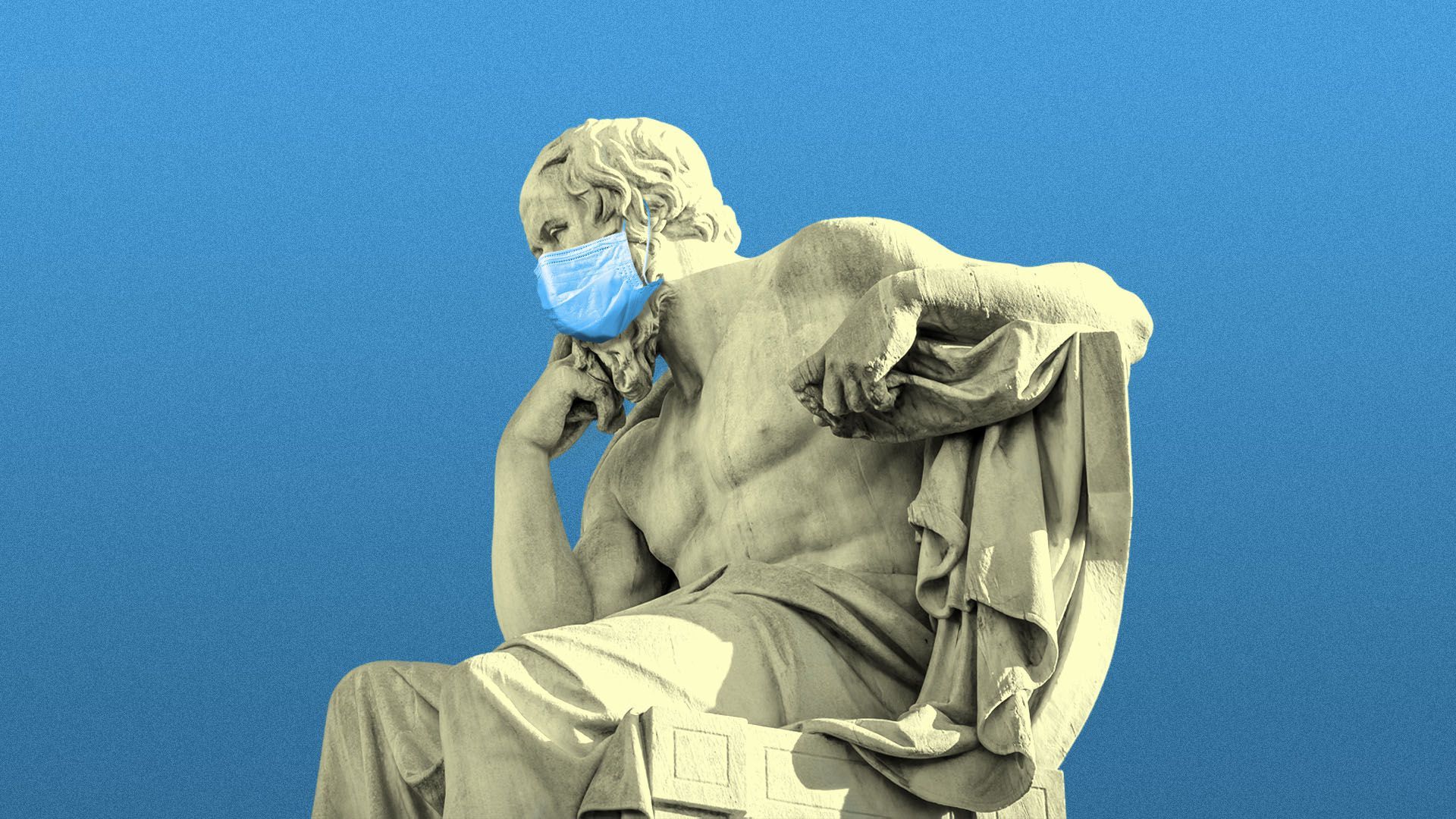The coronavirus outbreak will forever change the world economy
Add Axios as your preferred source to
see more of our stories on Google.

Illustration: Sarah Grillo/Axios
Both the U.S. and global economies are set to be permanently altered by the coronavirus outbreak and the measures that have been taken in response to it, experts say.
The state of play: "Fundamentally there are going to be huge changes in household consumption patterns, business patterns and global supply chains," Kevin Warsh, a former Fed governor and current economics lecturer at Stanford, said during a Reuters teleconference.
- "Recall how different the landscape was — not just for banks — in the last crisis. And this one seems to be having a bigger imprint on society."
The big picture: "History is now on fast forward," Robert D. Kaplan, managing director at Eurasia Group, said during a separate teleconference hosted by the Council on Foreign Relations.
What it means: Many of the changes to the world order that have been slowly creeping in will now be accelerated.
- Most importantly, there will likely be a retrenchment of globalization and international cooperation combined with further cementing of a winner-takes-all climate in which the biggest and most powerful companies and countries bowl over and eliminate smaller competitors.
- This is "globalization 2.0," Kaplan said.
What to watch: No matter who wins the U.S. presidential election in November, the challenges will be unprecedented, Kurt M. Campbell, a former assistant secretary of state and current CEO of Asia Group, said during the CFR teleconference.
- "The next president ... is going to face a situation where the coffers are empty, many businesses are bankrupt, the social safety net has been ripped and at the same time we have a rising power in the East."
The last word: The changes resulting from the virus are likely to be extreme, but induced over time.
- Torsten Slok, chief economist at Deutsche Bank Securities, predicts the post-virus world will include a more risk-averse public that prioritizes savings, "similar to what we saw after the Great Depression in the 1930s."
Slok foresees:
- More space between seats at restaurants, cinemas, sporting events and the like, meaning fewer people.
- Less vacation and business travel, coupled with more global government restrictions, at least until a vaccine is developed, cutting back consumer and business spending.
- Fewer stock buybacks and lower dividend payments.
- Regulations forcing households and corporates to hold potentially three months of cash in emergency savings.
- A significant increase in the supply of government bonds, risking a debt crisis.
As hard as coronavirus is going to hit the industrialized world, the impact on the developing world is going to be significantly more severe, analysts warn.
- "The needs of Africa, Latin America and the Middle East will be far greater than the capacity that the IMF and other international aid institutions have the ability to meet," CFR president Richard N. Haass said during the teleconference.
One level deeper: If outbreaks of the virus get severe in poorer, developing countries, many don't have the same ability to take social distancing measures because of limited technology and much larger household sizes, Kaplan added.
- Many are also highly dependent on commodity prices, which have taken major hits because of the virus, and others rely heavily on tourism.
- "These nations are between a rock and a hard place," Kaplan said. "Governments will really be squeezed."
Go deeper: The coronavirus economy will devastate those who can least afford it
